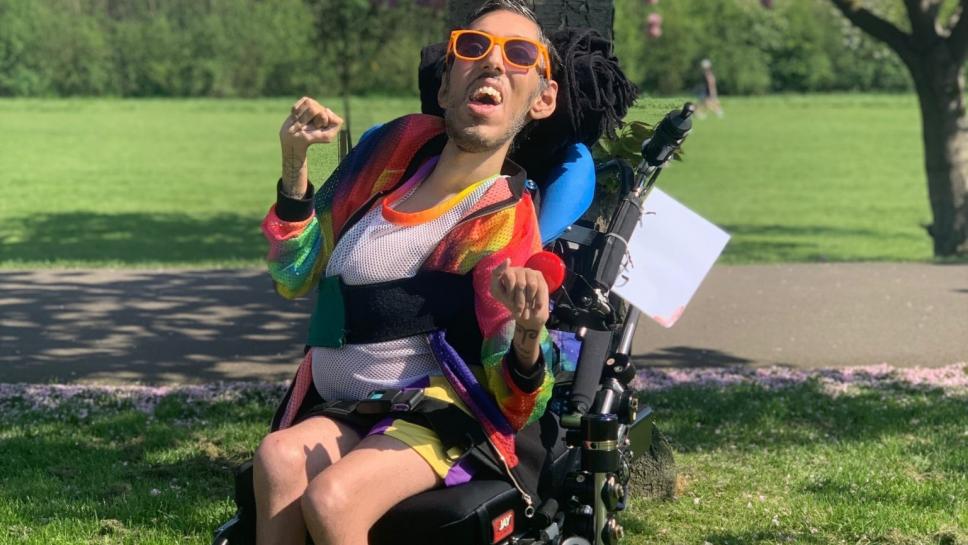
Recently, I have been rethinking, revaluing, realigning as someone worthy of respect and ensuring others treat me the same.
I only used to wear dull clothes. I used to think, “my body is too twisted” or “I’m too lanky” and was anxious about what I wore. But I don’t do that now. If I want to wear sequins, I will. If I want to wear shorts, I will.
I have always struggled with body image and imposter syndrome, so I want to change how I feel about/see/value myself (and how feels/sees/values me). I’m not fully there yet. Still, I am realigning my mindset to stop shaming myself as well as working tirelessly to destabilise the accepted narratives of creativity and disability for myself and other disabled people.
As someone who’s blessed with having a physical disability (Congenital Muscular Dystrophy), I’m an advocate for positive body image. And like the majority of disabled people, I want to see better portrayals of disabled people on television and more disabled people in advertising and marketing.
Disabled people need to see a lot more of themselves in the media, in adverts, on television. Around 20% of people are disabled, but only 0.06% of this segment is featured in advertising. It’s essential to support each other, but we can’t do that if society doesn’t support us.
Body image can have a significant impact on mental health, and that needs to change. Disabled people need to be seen for who they are, not painted as “inspirational” or “brave”.
It’s something I’ve had an issue with myself. Disabled people don’t fit into society’s paradigm of how you should look.
For example, there need to be changing rooms where disabled people can try clothes on, and accessible counters so you can actually buy the clothes.
Those are the kinds of things that can harm body image. For many disabled people, buying clothes online is the only way to shop.
We have a long way to go, but some people are making a difference. American model Jillian Mercado, who has muscular dystrophy, is fantastic. And Jameela Jamil’s I Weigh Community is incredible because it values people for who they are.
Over the last six months to a year, specifically, I have started to realign how I value myself, and I’m beginning to have a lot more disability pride. I am beginning to define myself on my own terms.
Ally, activist, advocate, agitator, adventurer, award-winner, awesome.
I am not here to be pushed into and consumed by the moulds of others’ illusions of who and what I should be, instead I am creating my own narrative to live my life the way that I wish with higher disabled body-positive views.
